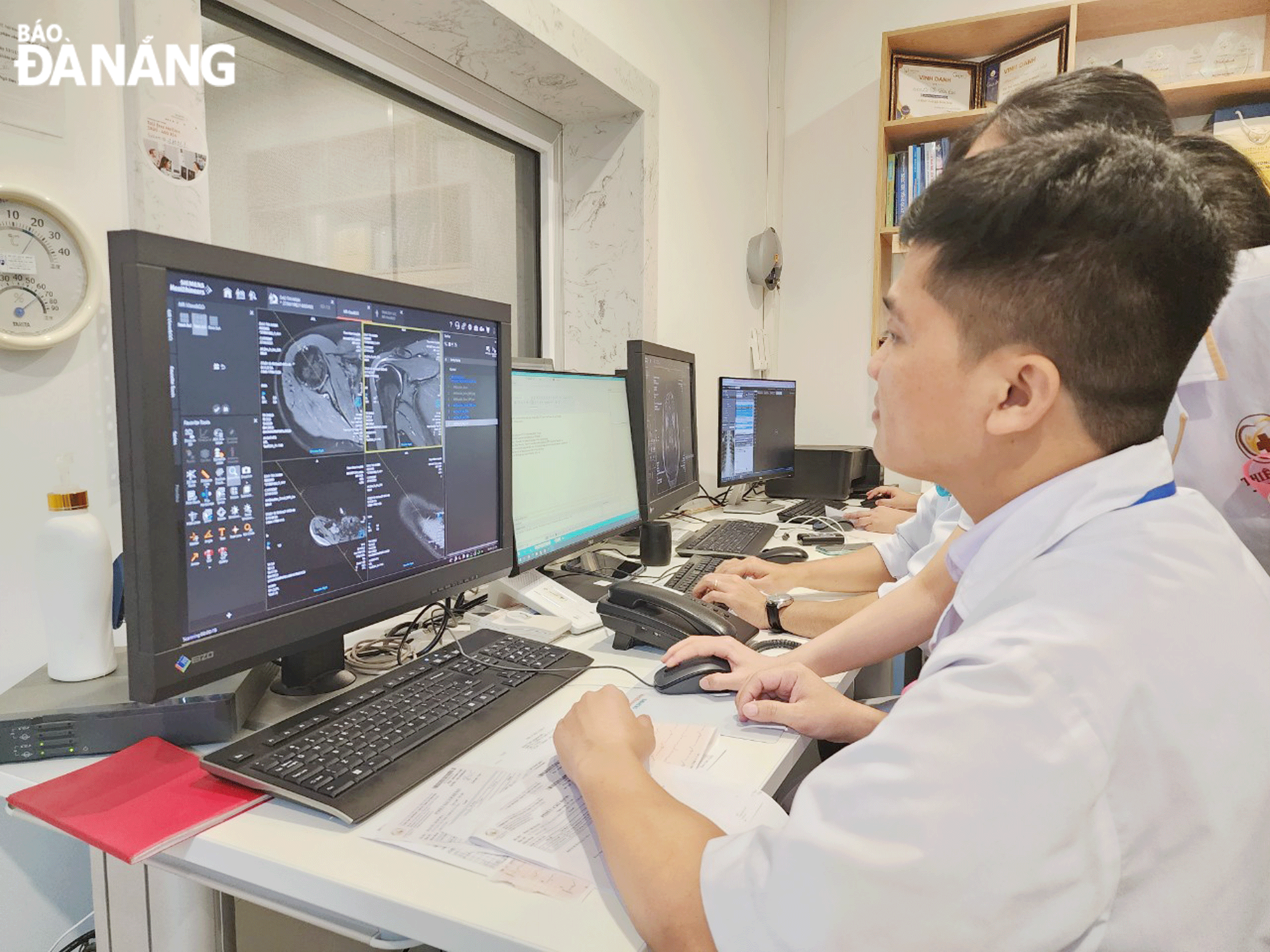Da Nang works to train specialised human resources for health sector
The Da Nang Department of Health is implementing a plan to train specialised human resources for affiliated medical facilities in the city. This is a long-term plan which will be carried out during the 2024-2026 period. The purpose of the plan is to promptly supplement human resources for medical units, and contribute to enhancing service quality so as to meet the needs of protecting and caring for people's health.
 |
| Training specialised medical human resources helps Da Nang's healthcare sector develop in the direction of strong general medicine and in-depth specialisation. Photo: PHAN CHUNG |
During that period, the Da Nang Hospital sends employees of its affiliated medical units to the country’s leading hospitals for training courses on 46 specialised teams. These hospitals are the 108 Military Central Hospital, and the National Institute of Hematology and Blood Transfusion in Ha Noi; and the Cho Ray Hospital and the University of Medicine and Pharmacy in Ho Chi Minh City.
Some specialised fields include the management, selection, donation and receipt of organ; anesthesia in liver resection and liver transplantation; intensive care before and after transplantation; liver resection and transplantation surgeons; stem cell transplantation; and endoscopic retrograde cholangiopancreatography.
The total cost of training 46 specialised teams during the period is more than VND8.1 billion.
In a similar vein, the Da Nang Maternity and Pediatrics Hospital is developing a plan to facilitate 109 teams to take part in specialised training courses. Some specialised training contents are very suitable for the development orientation of the hospital, including approaching and handling common situations in pediatric emergencies; basic dermatology; blood filtration resuscitation; specialised treatment of pediatric tuberculosis; and continuous pediatric blood filtration.
Doctor Tran Dinh Vinh, Director of the Da Nang Maternity and Pediatrics Hospital, said that the hospital is concentrating on expanding its scale to become the leading maternity and pediatrics facility in the Central Highlands region.
“In addition to the programme, the hospital implements other training plans with the purpose of improving professional quality. There are techniques that require implementation in teams, so there needs to be consistent coordination in handling and uniformity in expertise. Each position is important to the effectiveness of treatment as well as the safety of the patient” said Dr. Vinh.
According to the municipal Department of Health, between 2024 and 2026, the health sector plans to train 197 specialised teams for 7 medical facilities. These units are the Da Nang Hospital, the Da Nang Maternity and Pediatrics Hospital, the Da Nang Oncology Hospital, the Da Nang Lung Hospital, the Odonto-Maxillo-Facial Hospital, the Rehabilitation Hospital, and the Traditional Medicine Hospital. The total training cost for these 197 teams is more than VND 22.2 billion funded by the city budget.
Doctor Tran Thanh Thuy, Director of the municipal Department of Health, said that trainees are civil servants and workers currently working at medical facilities included in the plan, ensuring the conditions and standards according to the regulations of the training facilities.
After being trained, the trainees must commit to continuing to work at their units for a minimum period of 5 times the time of training courses. In case of force majeure and inability to continue the training course, the trainee and the unit must report to the Department of Health and submit to the city leaders for consideration.
“Based on the plan of the municipal People's Committee, the Department of Health annually coordinates with the Department of Home Affairs, the Department of Finance and other related units to issue specific plans for each stage, and at the same time monitor the progress of each unit and team, ensuring the correct subjects, regulations and time. Currently, affiliated hospitals have been forming specialised centres, so the training of human resources by team plays a very important and decisive role in receiving, transferring and mastering specialised medical techniques. This is aligns with the local health sector’s development roadmap towards strong general practice, in-depth specialisation and regional integration”, said Dr. Thuy.
Reporting by PHAN CHUNG - Translating by M.DUNG, P.TRA